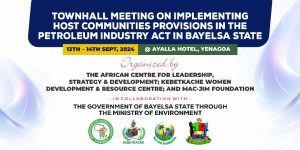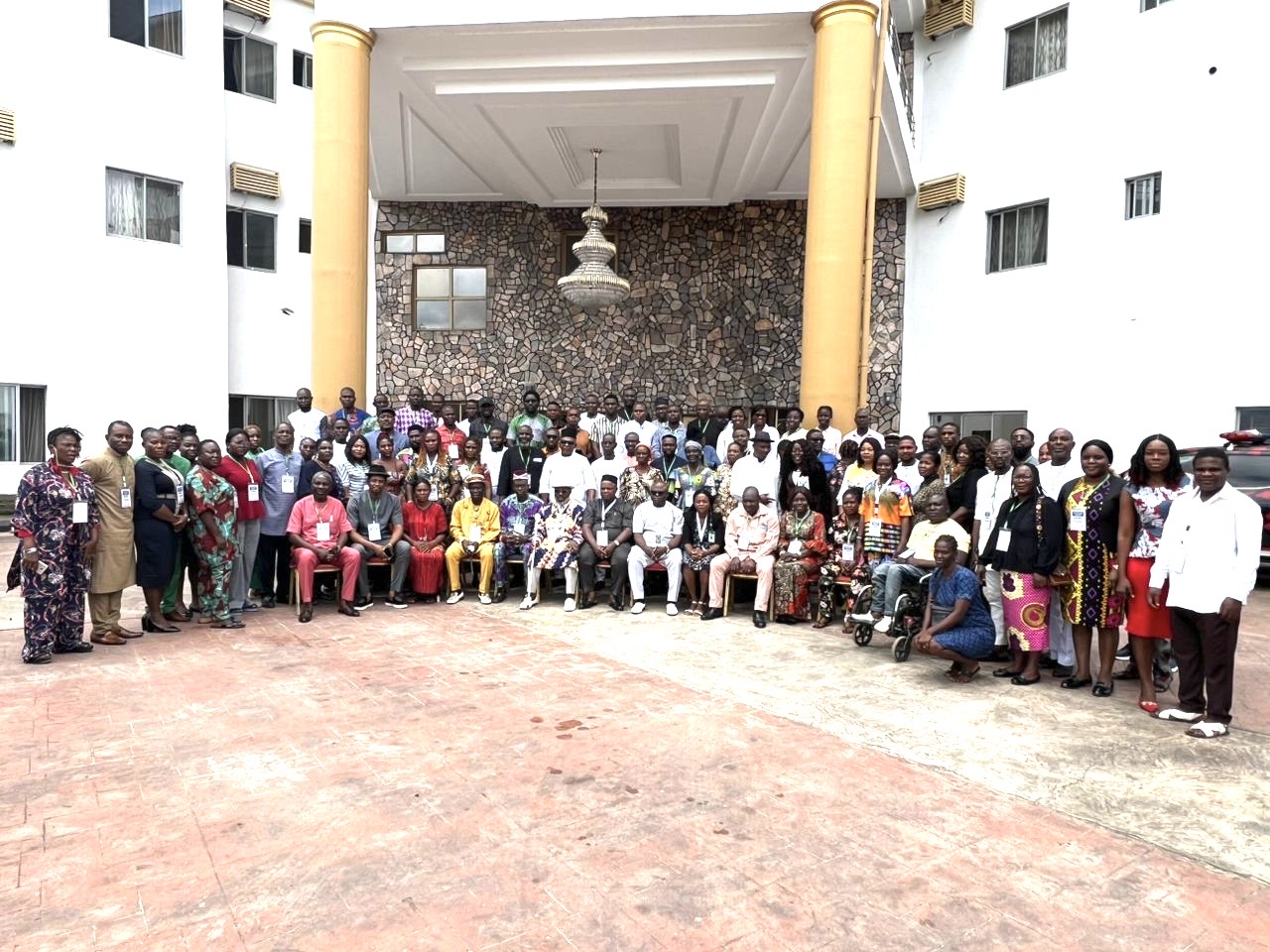Petroleum Industry Act (PIA): Stakeholders in Bayelsa Discuss Full Implementation, Call for Reforms to Address Gaps
A 2-day townhall meeting was held at Ebi’s Hotel, Bayelsa State, organized by the African Centre for Leadership, Strategy and Development, Kebetkache Women Development & Resource Centre, and Mac-Jim Foundation. The event brought together critical stakeholders to engage in discussions on the implementation of the Petroleum Industry Act (PIA) and its provisions for host communities. The meeting’s primary goal was to collaboratively develop a strategic plan of action for effective advocacy and to assess the role of the Nigeria Upstream Regulatory Commission (NUPRC) within the context of the PIA.

The townhall workshop attracted participants from diverse backgrounds, including Civil Society Organizations (CSOs), Traditional Institutions, Academia, youth groups, multinational oil companies, and government representatives at both national and sub-national levels.
From the Communiqué issued at the end of the 2-Day townhall meeting on the Petroleum Industry Act in Bayelsa State; the steering committee made some observations and resolutions as follows;
Key Observations:
The PIA lacks a clear outline of the roles of State and Local Governments in its implementation, requiring clarification in future amendments.
Projects initiated in communities often do not reflect community-driven needs, as issues affect various areas differently.
A knowledge gap exists among community stakeholders regarding the technicalities of the PIA, hindering their ability to understand their rights and fully benefit from its provisions.
The 3% gross operational cost contribution from oil companies (settlors) for community development is deemed insufficient.
Excessive regulatory powers are vested in the NUPRC, overseeing both technical and commercial operations of the oil companies.
The PIA does not adequately address gender inclusion or provisions for persons with disabilities, resulting in gender and disability insensitivity in the act’s current form.
Key Resolutions from Panel Discussions and Working Groups:
Prioritize Developmental Needs: Host communities should strategically focus on sustainable development and income-generating opportunities. Capacity-building initiatives in entrepreneurial skills should be emphasized for financial empowerment.
Transparent Implementation Process: The PIA’s implementation should be transparent and inclusive, with regular townhall briefings (monthly, quarterly, bi-annually, and annually) to promote accountability and gather community input.
Women’s Inclusion: Promote the inclusion of women in the leadership of the Host Community Development Trust (HCDT) governance structures, ensuring gender-responsive implementation.
Democratize the Electoral Process: Establish clear criteria for selecting members of the HCDT and Boards of Trustees (BoTs), including educational qualifications and credible track records.
Collaboration with State Ministries: Despite the PIA’s omission of State and Local Government roles, state ministries should work alongside CSOs and NGOs to safeguard host communities’ interests.
Engage Legal and Academic Experts: Communities should consult lawyers and academics to understand the provisions of the PIA and ensure they derive the full benefits, including their rights and roles.
Routine Monitoring and Evaluation: Regular assessments of host community projects are necessary to ensure compliance, transparency, and accountability.
Capacity Building for HCDTs: Ongoing training for HCDT members is crucial to ensure effective project management and sustainability.
Maximize Use of 3% Fund: While the 3% gross operational cost contribution may seem inadequate, communities are encouraged to access and utilize the funds efficiently, while continuing to advocate for increased allocations through PIA amendments.
Request for Audited Accounts: Host communities should formally request audited financial statements from oil companies to ascertain their entitled 3% of operational costs each year.
Engage with NUPRC: Communities should foster open communication with the NUPRC to report any misconduct or failure by oil companies to comply with PIA standards.
Also Read: PIA: NNPC, NCDMB, IOCs sign MoU to reduce contracting cycle
Enforce Environmental Standards: NUPRC must be held accountable for enforcing compliance with environmental standards, particularly in oil spill clean-up, environmental remediation, and compensation to affected communities. Communities, NGOs, and CSOs are urged to advocate for stricter enforcement.
Conclusion:
The communiqué was signed by the 13-member PIA Steering Committee, Bayelsa State Chapter, which was constituted and sworn in at the close of the workshop. This committee will guide the ongoing advocacy and implementation efforts for the PIA in Bayelsa State.
This townhall meeting marks a critical step toward ensuring that host communities are empowered and adequately supported through the provisions of the PIA, with key focus on transparency, sustainability, and inclusive development.




















